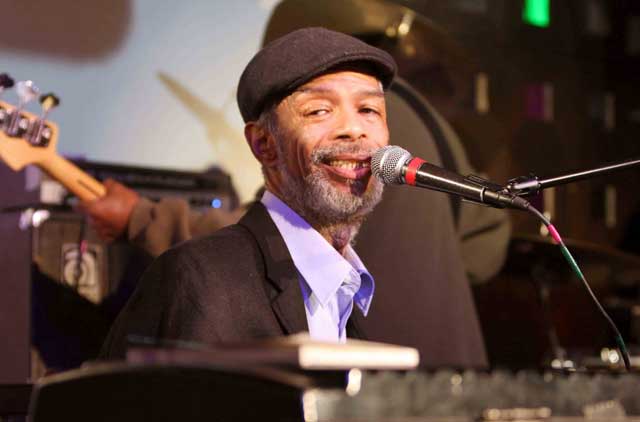When Gil Scott-Heron decided the revolution would not be novelised

Your support helps us to tell the story
From reproductive rights to climate change to Big Tech, The Independent is on the ground when the story is developing. Whether it's investigating the financials of Elon Musk's pro-Trump PAC or producing our latest documentary, 'The A Word', which shines a light on the American women fighting for reproductive rights, we know how important it is to parse out the facts from the messaging.
At such a critical moment in US history, we need reporters on the ground. Your donation allows us to keep sending journalists to speak to both sides of the story.
The Independent is trusted by Americans across the entire political spectrum. And unlike many other quality news outlets, we choose not to lock Americans out of our reporting and analysis with paywalls. We believe quality journalism should be available to everyone, paid for by those who can afford it.
Your support makes all the difference.In 1969, the 19-year old Gil Scott-Heron told the dean of Lincoln University that he wanted to halt his degree studies temporarily in order to finish writing a novel. The dean insisted he see a psychiatrist. The likelihood of his getting the novel in print seemed minimal, but a year later in 1970, The Vulture – an impressively crafted urban noir, was published to critical acclaim. Like an early forerunner of The Wire with its cool cats and "corner boys", it was an impressive debut and was followed by a second novel – The Nigger Factory, in 1972.
Scott-Heron never did return to Lincoln University; he met pianist and flautist Brian Jackson and began setting the poems, which he had been writing in tandem with the novels, to Jackson's music. The collaboration was so successful that, decades later, he is still best known for creating his groundbreaking hybrid of soul, jazz and poetry which became the precursor to hip-hop.
The novels, both now republished by Canongate, share several of the distinctive trademarks of his albums: acute social commentary, vivid street imagery and abrasive wit, as well as tenderness, romance and sensuality. The charged rhythm of his written prose, which clearly owes a debt to his literary hero – 1920s jazz poet Langston Hughes – similarly conjures up the cool drive of his own hep-cat, preacher-on-the-mountain vocal delivery. "Time," says Spade, one of the four narrators in The Vulture, "The word comes through the turnstiles of your mind, ringing that bell that attracts your attention like the warning bell near the end of a line on a typewriter. Time is here, then it is gone."
The Nigger Factory is set on an early 1970s American student campus and presents an equally vivid picture of the unrest and dissent amidst the burgeoning Black Power movement.
But Scott-Heron found that the success of three albums in as many years allowed him to reach a far greater audience than was possible through novels. As Canongate publisher Jamie Byng explains, "He saw himself as a musician first and foremost, not as a novelist and didn't feel the urge to write fiction again."
Gil Scott-Heron plays the Royal Festival Hall, London, tomorrow, and Manchester Opera House on Sunday; 'The Vulture', 'The Nigger Factory' and 'Now and Then', a new collection of Scott Heron's poetry, are published by Canongate
Join our commenting forum
Join thought-provoking conversations, follow other Independent readers and see their replies
Comments